Sacrifices Read online
Page 2
***
It's years later. Karkana is thirty, and he owns more wine cups than he could ever need. He has taken over his father's business now, trading with Athens, sending ships across the Adriatic full of ore from the mines of Etruria, bringing luxury back. Sometimes, a fortunate trade brings in fine onyx seals from the hot rocky land of the Medes and Persians, a land he'd believe was mythical if he hadn't seen these for himself; more often he deals in Greek earthenware. There are delicate kraters, kylices, rhytons, amphoras - not the crude storage amphoras with their rough unglazed exteriors, but the finely decorated styles, used in the house - and kantharoi with their upswung handles, packed in straw mats and then bedded in loose straw for protection; and there are wine cups by the thousand.
Right now his favourites are those by Exekias, even though the new red-figure work by Andonikes and Euphronios is more fashionable. There's something in the slick blackness of Exekias' figures that appeals to him, the flowing curves of his wasp-waisted men and thin-legged horses, rather than the superficial realism of the new school. He wonders if he's becoming too attached to the past, if he's sliding into a grumpy middle age - but it only takes one look at the Exekias krater he owns (though he'll have to sell it, eventually) to set his mind at rest; the artist really is a master without parallel. He doesn't feel the same way about Psiax at all, even though Psiax fetches equally high prices and works in black-figure.
There's one little wine cup he has decorated just with little figures of swordfish. If you pour white wine into the cup, they seem to be swimming in it just as if they were in a small sea, and the black of their flexing bodies shines like fish scales, and seems to move. That's Exekias' talent; flow. Life.
They moved from Cisra just after his father came home, when Karkana was seven. He doesn't remember it well; some places he can see clearly, like the atrium at home, narrow and cramped, with the three amphorae against the wall and the gnarled stump of the vine, or the pool under the three great pine trees where he used to play with his friends, whose names, still remembered, are a sort of talisman of past days - Vel and Larth and Aule - though he can't any longer remember their faces. But between the places he remembers, his memory is greyed out, blurred; if he went to Cisra now he wouldn't know how to get from his house to the temple of Tinia, though he hopes his feet would somehow remember what his mind doesn't.
They moved up north to Felsina and now Spina, where they made a home among the canals, in the spreading salt lagoons where the sea comes to die.
His mother is still complaining about it. She never saw her amber brooch again, that she used to be so proud of. Every time her husband displeased her, by being late, or forgetting something, or making a bad trade with one of the foreign boats, or dragging mud into the house from the quayside, whatever was said first, and next, they knew eventually the amber brooch would impose itself on the conversation, and then the recriminations would start, reopening that years-old argument over who lost it in the first place. It was still an argument, even though amber was easier to get here than it ever had been in Cisra; there were always Gauls about, or Celts of some description, who sourced it up in the far north, in the lands of ice that were dark six months of the year. But even so, they never heard the last of it.
And why did we have to move to Cisra anyway? she asked, as the next step in that particular dispute.
"You know very well why," his father would say, and then she'd complain about having had to leave all her friends behind in Cisra.
"I had no choice," his father would say, and then she'd tell him it was his fault, he shouldn't have taken the prisoners where he did in the first place, and then they would both stop, and look guiltily at Karkana, and the argument sputtered and died like a snake run over by a cart wheel, that wriggles ever more slowly for a few minutes till the wriggling stops.

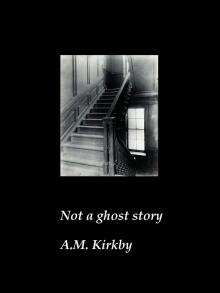 Not a Ghost Story
Not a Ghost Story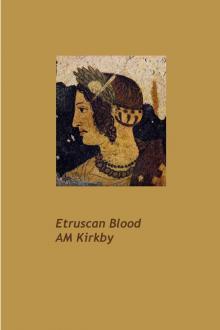 Etruscan Blood
Etruscan Blood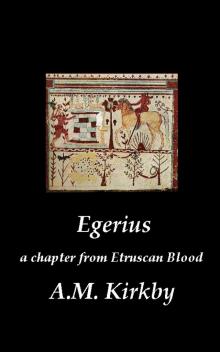 Egerius
Egerius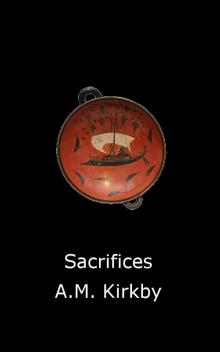 Sacrifices
Sacrifices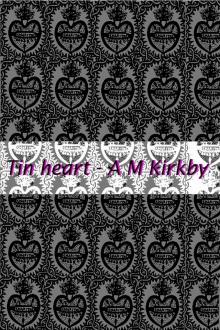 The Tin Heart
The Tin Heart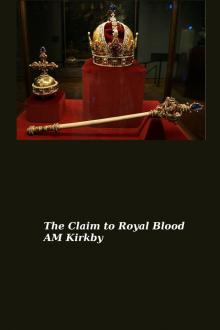 The Claim to Royal Blood
The Claim to Royal Blood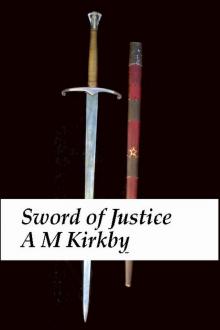 Sword of Justice
Sword of Justice Rise Above
Rise Above